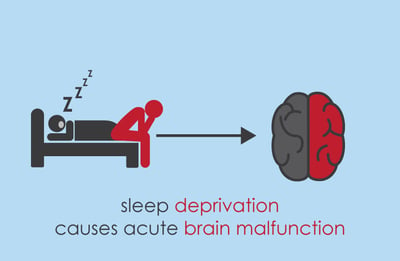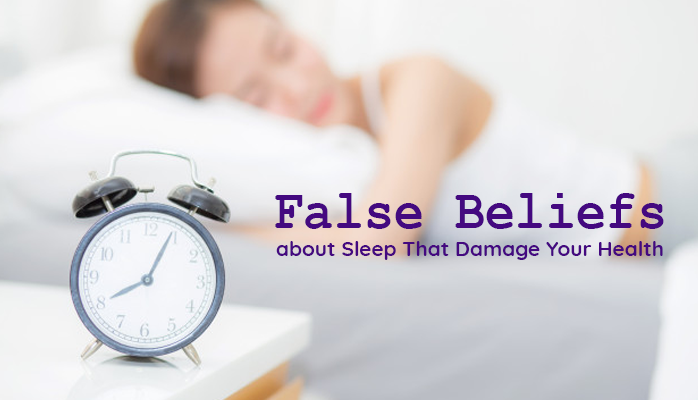False Beliefs About Sleep
Sleep myths are false statements that are regularly disseminated online, at home, among friends, etc. Unfortunately, sleep myths can also be damaging to your health if you develop sleep deprivation by adhering to them.
Sleep deprivation is an insidious condition that lowers performance and quality of life in the following aspects of your life:
- Socially
- Physically
- Mentally
- Emotionally
Below are the common sleep myths and the truth about them.
1. Snoring Is Harmless
Snoring might make you the center of many jokes among family and friends, but it’s not always harmless. Chronic snoring, especially socially unacceptable snoring, is a primary sign of obstructive sleep apnea.
Obstructive sleep apnea is a condition where you continuously stop breathing for about 20 seconds and then rouse yourself in order to start breathing again, but you won't remember any of these episodes. This can happen dozens to hundreds of times per night, thus resulting in, severe sleep deprivation.
2. Alcohol Helps You Sleep Better
A nightcap before bed is a part of many peoples' nighttime routine. After all, a drink does seem to induce fatigue and too much drinking can induce full sleep.
Unfortunately, while it may incite you to head to bed, it will result in significantly reduced sleep:
- It disrupts REM sleep, which is important for memory and learning
- Alcohol is a diuretic, meaning you are more likely to wake up in the middle of the night to use the restroom
Alcohol should be avoided in the hours leading up to bed. If you are used to having a nightcap before bed, you will likely experience a noticeable difference in wakefulness in the morning if you cut out your nightcap.
3. If You Say In Bed Long Enough, You’ll Fall Asleep
 If you think that you can “bull” your way through being unable to fall asleep simply by staying in bed, that is incorrect. Most healthy sleepers take about 15-20 minutes to fall asleep.
If you think that you can “bull” your way through being unable to fall asleep simply by staying in bed, that is incorrect. Most healthy sleepers take about 15-20 minutes to fall asleep.
By staying in bed on sleepless nights, you condition your body into associating the bed with sleeplessness, which is the opposite of the goal. In the words of Dr. Rebecca Robinson, a sleep researcher, “…make sure to get out of bed, change the environment and do something mindless.”
It’s important to point out that “mindless” activity should avoid blue lights. So no phones, movies, videos, or TV. Reading a book, journaling, meditating, doing yoga, etc. are just some of the non-screen, relaxing activities you can do to help sleep.
4. Falling Asleep to TV/Noise is Okay
Countless people fall asleep to television and videos. Tune in, relax, zone out, and finally fall asleep. While white noise, such as fans or running water, may be beneficial as they are “natural” or simulate “natural” sounds, if your goal is to get good sleep then you should turn off the TV and shut your computers [Sleep.org].
For one, TVs screens emit blue light that delays and suppresses melatonin. Then there is the problem that TV and videos can emit unnatural, jarring noises that temporarily wake you up, even if you don’t remember waking up in the morning.
5. “I’m Fine on 4-5 Hours of Sleep”
Many say and believe this myth. But there is a plethora of scientific research that will show the appropriate amounts of sleep. Getting less than the recommended 7-9 hours of cumulative sleep per day results in lower performance in every aspect of life.
An important word is cumulative sleep. You might only sleep for 4 or 5 hours at a time, but unless you are supplementing that amount of sleep with naps in order to get around 7-9 hours you will suffer sleep deprivation. If you fail to do this, then you are at risk for developing sleep deprivation and the associated risk factors.
Concerned that you are not sleeping? Assess your sleep health with the following online test that will put you in contact with one of our sleep health professionals.


